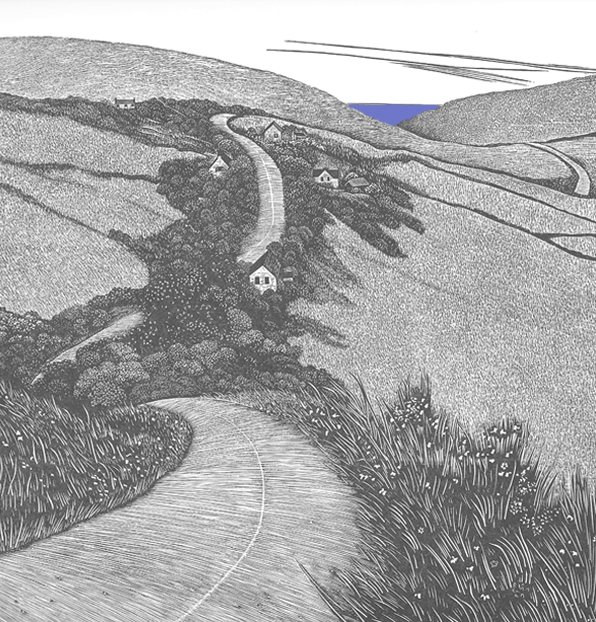Here at SF our first instinct was to quietly ignore the overblown sentimentality of Saint Valentine’s Day but a handful of romantic souls have suggested we mark the occasion in some way, and give a nod to love in this month’s newsletter. Thus we present Rosemary Sutcliff’s heart-breaking account of falling in – and out – of first love from her memoir Blue Remembered Hills.
Rosemary Sutcliff was born in 1920, the only child of a naval father and a pretty, manic-depressive mother with bags of charm and a wild imagination. As a child Rosemary suffered from the juvenile arthritis known as Still’s Disease, which burned its way through her, leaving her permanently disabled, yet Blue Remembered Hills is the very opposite of a misery memoir. It is a record of the growing up and making of a writer, and it is full of humour, affection, joy in people and the natural world, and the kind of deep understanding that can come out of hard experiences. In some ways, hers was an enchanted childhood, lived among the vivid sights and sounds of the dockyards, which would later feed into her books.
When her father retired from the sea the family moved to Torrington in North Devon, and at 14 Rosemary went to Bideford Art School, becoming a skilled miniaturist. After the war was over, in the summer before the great freeze of 1947, along came Rupert, the son of a recently arrived neighbour, invalided out of the RAF, glamorous with darkly flaming red hair and ‘blazingly-golden hazel eyes’, who spoke to her as an equal – ‘the first person to whom it ever occurred that I could be asked out without my parents’. They grew closer and closer, but then Rupert clearly took fright, and eventually had to tell her that he had fallen in love with someone else, breaking her heart. Fortunately for us, however, Rosemary had just begun to discover writing and before long her first book for children, The Queen Elizabeth Story – ‘written out of heartache, but also out of something set free within myself ’ by that searing experience was accepted by the Oxford University Press.





